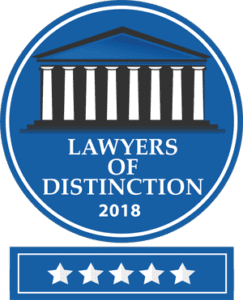Ultimately every legal issue can end up in court. Therefore, Personal Injury/Civil Litigation refers to litigation and all other aspects of law which may or may not be litigious in nature such as physical and/or emotional injuries from tortious conduct, such as:
- Motor Vehicle Accidents
- Slip and Fall
- Negligence
- Defamation
- Fire Damage
- Conversion
- Federal Civil Rights Act
- Fraud
- Trespass (to land and property)
- Abuse of Process
- Malicious Prosecution
- Assault and Battery
- False Imprisonment and Arrest
- Invasion of Privacy
Typically however, litigation is what happens when things go wrong and it ends up in court.
What is the Litigation Process?
In a nutshell: 1) Plaintiff sues; 2) Defendant Answers and/or brings a countersuit or drags another party in (amongst other actions); 3) Parties commence discovery; 4) Sometimes mediation or alternative dispute resolution; 5) Trial; 6) Judgment; 7) Appeals.
Sometimes you can settle matters out of court. Sometimes you can’t. Lawsuits are initiated by filing what is called a Complaint (among other documents). According to David Hubbard, “identifying and establishing early the theme of civil litigation is important and begins with a well-crafted Complaint. The Complaint is the invitation and your invitation need be remarkable to be effective.” But note there are other procedural requirements you need to follow to obtain jurisdiction over the other party. You need to have reason to sue and typically you will have to prove every element of your Cause of Action to a judge or jury.
The burden of proof in civil litigation is preponderance of the evidence, also known as balance of probabilities (or 51% certainty). The standard is met if the proposition is more likely to be true than not true. Hubbard further simplifies the “preponderance of the evidence” when speaking to Alabama jurors by using a football analogy: “In order for the plaintiff to prevail in civil litigation, he or she is not required to drive the football 100 yards and score a touchdown. Plaintiff need only cross the 50 yard line to prevail.”
Hubbard Law Firm has successfully represented clients in recovering money damages for physical and/or emotional injuries under theories of insurance bad faith, employment discrimination, defamation, malicious prosecution, abuse of process, and negligence.
Contact us today for a FREE consultation and evaluation of your injury claims.


